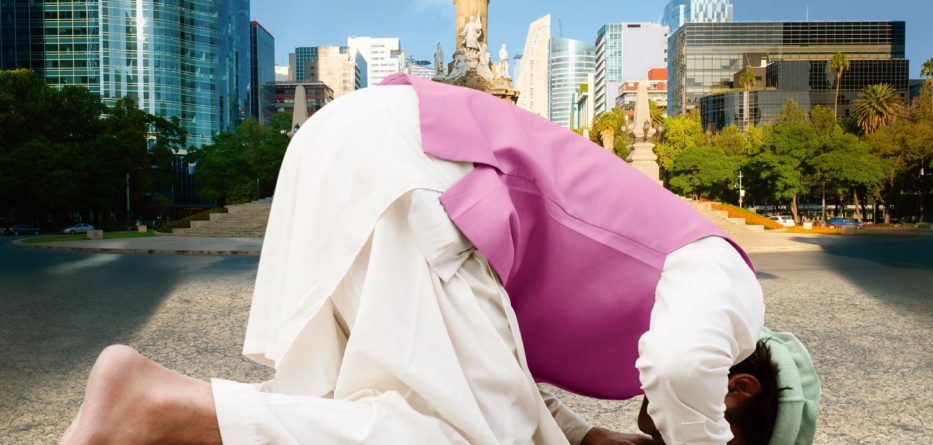Mexico City – As people approach a three-story building on Mexico City’s west side, words are heard that come from other latitudes: men and women in the typical dress of Islamic countries speak in foreign tongues, people greet each other with the words “Salaam-alaikum” (Peace be unto you, in Arabic).
Anyone of any religion is welcome at the Muslim Community Educational Center, where they may take part in the different Islamic activities.
Inside the building, the impression of being whisked away to the Middle East is complete when the muezzin calls the faithful to prayer with the phrase “Allahu-akbar” (God is great), after which the imam gives his sermon, first in Arabic and then in Spanish
In Mexico, a small but active Muslim community has carved out a niche where their unity may be protected in a country where its members are a minority, a microcosm of the Islamic world that reflects the diversity of its members origins.
While the Statistics Institute has just 3,760 Muslims on record in the country based on the 2010 census, the community’s own estimates indicate there are some 12,000, according to Sheik Said Louahabi, head of the Educational Center in the capital’s Polanco district.
“When I got here in 1994 there were 88 of us, including the diplomats. The truth is we’ve grown incredibly,” the sheik of Moroccan origin told EFE.
He said that Muslim immigrants have created a world where they can practice their faith almost as if they were in their countries of origin.
This can be observed particularly during Ramadan, the ninth month on the Islamic calendar (and which this year lasts from May 5 to June 4), when Muslims abstain from eating and drinking during the day and break their fast at nightfall.
“The significance of Ramadan for Muslims is above all to comply with this, one of the five pillars of Islam,” the sheik said.
He added that the other four are the profession of faith, daily prayers, charity toward the poor, and the pilgrimage to Mecca.
According to Louahabi, when he came to Mexico the Muslims missed the way they practiced their religion in the lands of their birth.
“We found work, thanks be to God, and we found physical, bodily happiness. But we did not find spiritual happiness because the atmosphere of Ramadan in non-Islamic countries is nothing like in Muslim nations,” he said.
“So we have tried, as founders, to create the environment of our native lands that we miss so much,” Louahabi added.
He said that Muslims started bringing food and getting together to break their fasts, and gradually the word spread. “Then the embassies heard what was happening that they started bringing food as well,” he said.
The more they emulated the atmosphere of their native lands, the less they missed them, according to the sheik.
That feeling is obvious at the Educational Center, a place of worship founded in 2001 by immigrants, which also gives classes in integration and subjects related to Islam.
During the daily prayers at the center, the faithful follow the imam’s sermon attentively, united in their faith despite their diverse origins.
“The nature of the mosque we have at the Educational Center reflects the origins of people from Africa, Europe and Asia. We have Muslims from Indonesia, Malaysia, Albania, France, Algeria, Morocco, Egypt and Palestine. We have Muslims from everywhere,” Moussa Youssef, a member of the center, told EFE recently.
He noted that there are also local Muslims among the 2,000 to 3,000 faithful who attend the center. “The great majority are Mexicans,” he said.
For Youssef, a native of Egypt, Mexico is a favorable land for practicing Islam, thanks to certain cultural similarities and the religious tolerance of the Latin American nation.
Sheik Louahabi said that all Muslims in Mexico try to be united under the concept that there is but one God and Muhammad is his prophet. But he acknowledged that sects exist “for their own interests.”
“That is why we are not perfectly united,” he said.
For that reason, when he gives a sermon he tells the faithful that if anyone asks them to what religion they belong, they must simply answer: Islam.
“But if they are asked, ‘Are you Shiite? Are you Sunni? Are you Ibadi?’ I tell them to answer, “I am Muslim,’ because the prophet Ibrahim (Abraham) said ‘You are called Muslims.’ We all follow the same path, the religion of the prophet Muhammad,” he said.






